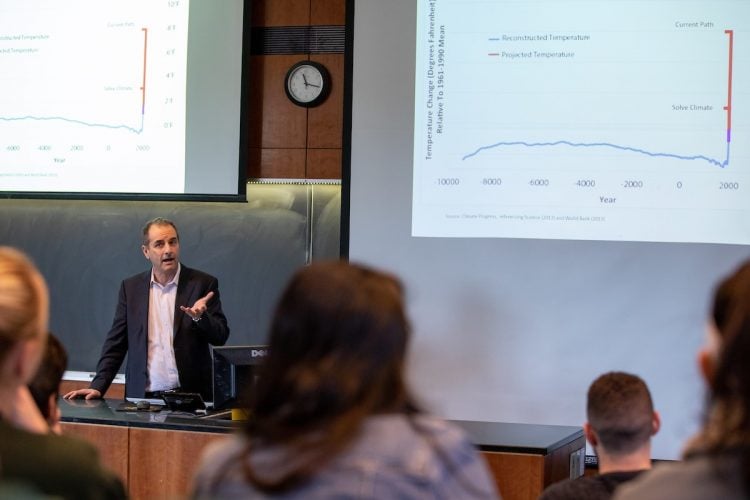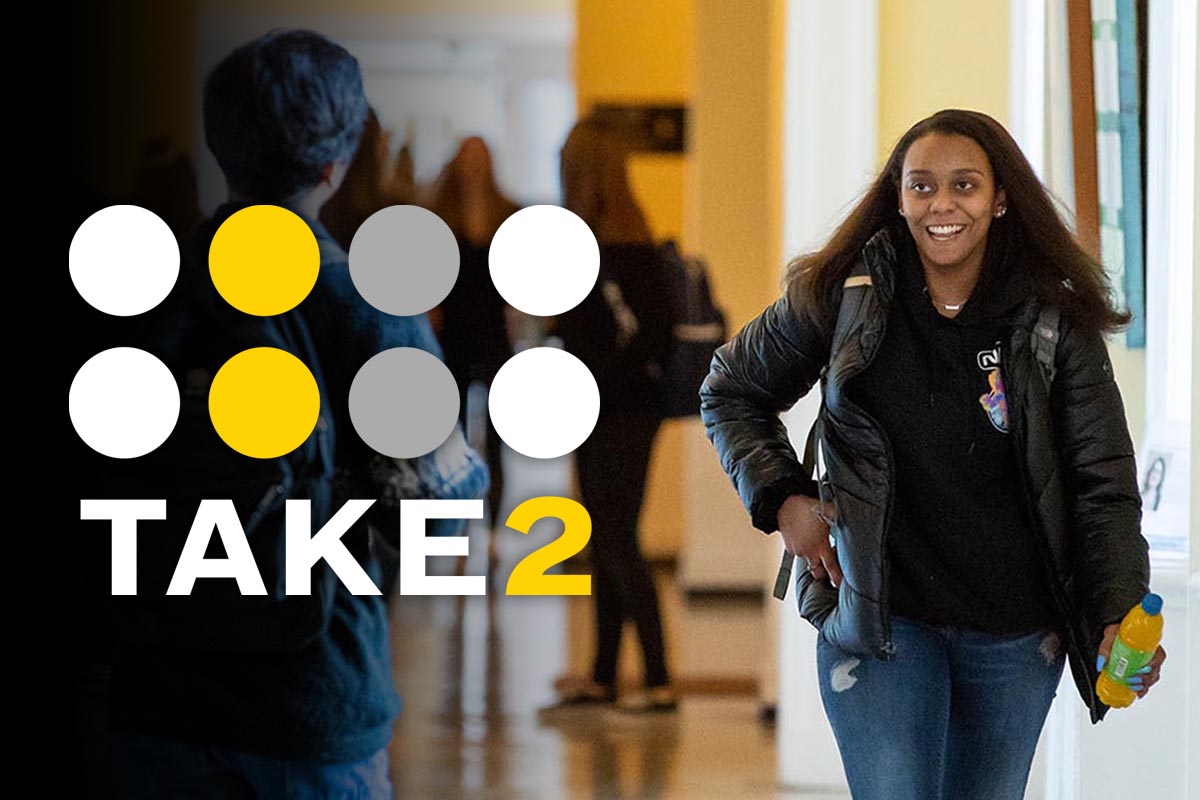Internationally acclaimed climate change scholar lectures on ‘How to Solve Climate by 2030’

Eban Goodstein gives the lecture “How to Solve Climate by 2030” to Randolph environmental studies and science students and other members of the Randolph community.
On Wednesday, Randolph students, faculty, and staff learned from one of the world’s leading voices in the environmental field about the ways they can help reduce climate change.
Eban Goodstein, an economist, author, and public educator who directs the Center for Environmental Policy and the M.B.A. in sustainability at Bard College, gave the lecture, “How to Solve Climate by 2030,” to Randolph environmental studies and science students and other members of the Randolph community. In his talk, Goodstein explained the Solar Dominance Hypothesis: the idea that in the 2020’s, solar plus storage will emerge as part of a suite of highly disruptive energy technologies, and that driven by both the market and policy, within 10 years, 50 percent or more of power could be produced from solar plus storage. Goodstein asserted that solar plus storage market disruption, combined with rising civic action around other climate solutions and justice in the transition, could open the road to “solve climate”—or at least the energy side—over the next decade.
In addition to his lecture, Goodstein met with students over lunch to give advice about careers in the environmental sustainability field.
“Climate change is one of our society’s greatest contemporary issues—an existential threat,” said Karin Warren, Herzog Family Professor of Environmental Studies. “We want to educate and empower our students to focus on solutions. Inviting Dr. Goodstein to Randolph to share strategies for addressing our climate crisis with existing solar technologies, and how their future careers can make a difference, is the kind of motivating message we want our students to hear.”
Outside of his work at Bard College, Goodstein has authored three books: Economics and the Environment, (John Wiley and Sons: 2017) now in its eighth edition; Fighting for Love in the Century of Extinction: How Passion and Politics Can Stop Global Warming (University Press of New England: 2007); and The Trade-off Myth: Fact and Fiction about Jobs and the Environment (Island Press: 1999). His research has been featured in The New York Times, The Washington Post, Scientific American, Time, The Economist, USA Today, and The Chronicle of Higher Education, and he has testified in Congress on the employment impacts of environmental regulation.
Tags: environmental science, environmental studies, Karin Warren, speakers
